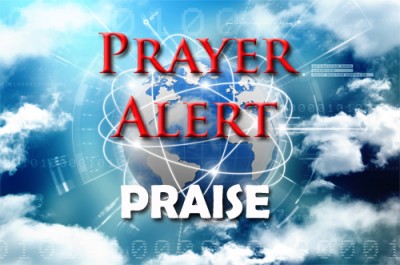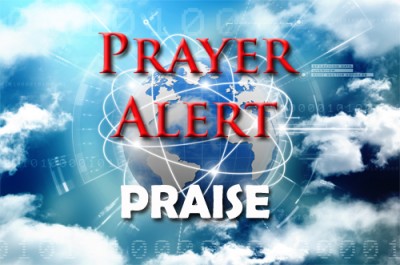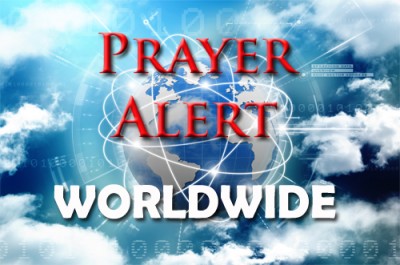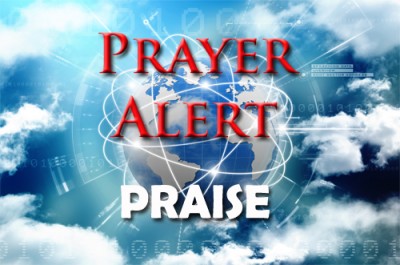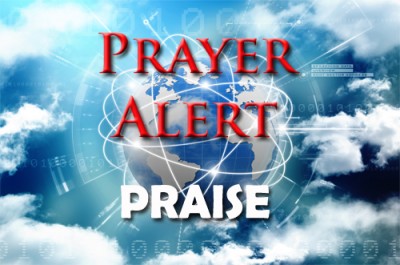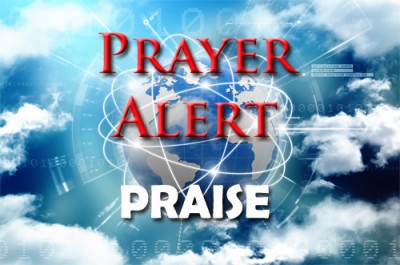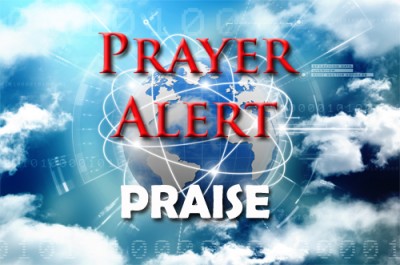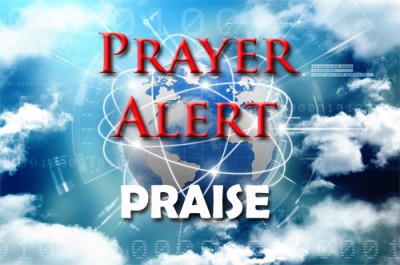A pastor and Vietnam veteran is on a cross-country march for spiritual awakening in America. Sixty-eight-year-old Chick McGill of Tennessee said God moved him to make the trek from sea to shining sea. Starting in North Carolina, McGill is walking 3,200 miles with an American flag calling attention to the Ten Commandments, the Golden Rule, and his nation's founding principles. While walking, he said he salutes every passing driver along the way. Many people stop to talk with him. He said prayer is the only thing that can change the nation. ‘He (God) approached me three times,’ McGill said. ‘The first two times I thought I was hallucinating. The third time I said, 'This is God talking to me'. 'I can't argue with God,' he added.
North Korea has released American missionary Kenneth Bae, who his family said had been imprisoned for his Christian faith, along with fellow US citizen Matthew Todd Miller. The Office of the Director of National Intelligence (DNI) confirmed that Bae and Miller are on their way back to the United States. Kenneth Bae, 45, had been held since 2012. He was sentenced to 15 years' hard labour on charges of trying ‘to overthrow’ the state. However family members linked the detention of the Korean-American to his Christian work in a nation where devoted Christians are forced to meet underground. Many thousands of Christians are believed to be among those held in prison camps, according to several advocacy groups and other sources. Fellow prisoner Todd, 24, was detained in April after he tore his tourist visa to pieces and shouted that he had come ‘to the DPRK after choosing it as a shelter,’ North Korea said at the time.
When the medicine failed
09 Nov 2014One Chadian man’s violent fits were healed by the ceaseless prayers of the Guinebor II Hospital staff. Bousanna Barnabus probably did not expect to be healed with prayer when he came to the BMS World Mission hospital, located outside N'Djamena, Chad. After four days of continuous epileptic fits, Bousanna’s family brought him semi-conscious to the hospital for treatment. The attacks left him mentally and physically exhausted and very afraid. Bousanna had one moment of clarity and he used it to ask for prayer. When he did this it felt as if something amazing was happening. And it was. As Christians, we know that prayer is a powerful thing. We ask for safety, healing, wisdom and more, knowing that God will provide what we need at precisely the right time. In Bousanna’s case this is exactly what happened, and we give thanks.
Imprisoned pastor’s mother escapes Iran
09 Nov 2014The mother of Imprisoned American pastor Saeed Abedini went to Iran to support her son and try to secure his release. However, while in Iran she has been facing increasing violent threats against her, and although she did not want to leave Iran and did not want to say goodbye to her son, she had to leave to guarantee her safety. Fox news reported on Wednesday, ‘Saeed's mom is now safely out of the country, we look forward to seeing her soon here in the United States. It has been a difficult time for everyone
EU gives $254 million more to fight Ebola
31 Oct 2014European leaders agreed to $1.26 billion in funding to fight Ebola in West Africa by the end of the year at an EU summit in Brussels on Friday. Over the weekend the first $254 million was put at the disposal of international efforts, including almost $30.5 million toward the development of a vaccine. ‘In the case of the Ebola disease, the international community, all of us, underestimated the danger and the extent of the threat,’ said commissioner-elect for humanitarian aid and crisis management, Christos Stylianides. Stylianides is the EU’s new Ebola response coordinator, a decision that also came out of last Friday’s meeting. As for how the money allocated by EU is being spent, ‘we have sent medical and humanitarian experts to the affected countries and deployed mobile laboratories,’ he said. ‘We are getting vital supplies shipped to the region.’
Middle East: The extraordinary move of God
31 Oct 2014God is touching hearts in powerful ways, unleashing His Spirit among refugees, their families, and into surrounding communities and nations. ‘There is something happening right now that is unprecedented,’ says Brother Thomas, from All Nations. ‘The spiritual openness is incredible.’ As he toured a ramshackle refugee camp composed of cardboard, wood slats and plastic tarps, he found many who had visions and dreams of Jesus. ‘Almost every family we visited had some kind of experience, either through dreams or someone had given them a New Testament in the medical clinic or prayed for them. There was fear and uncertainty about the future. Because the war is Muslim against Muslim they have a feeling there has to be something better. They are looking for answers. Over and over we saw people who have questions, who want to know more about Jesus.’ Other Christian workers are equally amazed. Some have been there 17-20 years and it is mind boggling for them.
USA: Students embrace evangelism challenge
24 Oct 2014College students across the United States were joined by believers of all ages as they participated in Engage24, a one-on-one evangelism initiative that challenged Christians to share the Gospel with at least one person in a 24-hour time period. October 14 marked this observance on several college campuses this year and saw participation expand to churches. When the development of Engage24 began they encouraged college students to share their faith with a creative approach. ‘Instead of concentrating on how many people came to Christ on one particular day, we wanted to see how many college students would share their faith on that particular day. And if we did that first, then we could ultimately accomplish the goal of seeing people come to Christ.’ They rely heavily on Twitter to track results and read reports from students who had the opportunity to share the Gospel during the day. See also
North Korea Jeffrey Fowle released
24 Oct 2014In September you were asked to pray for Jeffrey Fowle, the American who was detained by the North Korean authorities after leaving a Bible in his hotel room. CNN has reported his release this week. He was picked up by an American government plane on Tuesday and is now back in the US. It was not clear from the report how the release came about, but a senior State Department official confirmed to CNN that the North Korean authorities had indeed let him go. Last month Fowle told the network that he was due to go on trial soon and had pleaded with the US for help to secure his release along with two other Christians in prison with him
